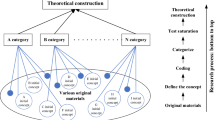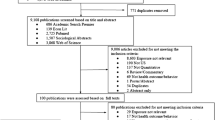Abstract
Since the sixties of the twentieth century, thepolicy of the Dutch government on urban renewalhas been subject to three approaches, each onedifferent from the others. Up until thebeginning of the seventies, the accent was onthe expansion of the function of the largercities as economic centers. The expansion ofthe inner city for that purpose proceeded atthe expense of the residential function of thebuilt-up area. Later, the main goal was justthe opposite; attention was turned to thequantitative and qualitative reinforcement ofthe urban residential function of the citycenter and its surrounding urban residentialneighborhoods. Under that approach, the accentwas placed on improving the housing conditionsof the `sitting' residents. Accordingly, theconstruction program consisted for the mostpart of social housing that was extrainexpensive. In the course of the nineties,this so-called classic urban renewal approachwas displaced by urban revitalization. The newapproach placed the accent on strengthening thecompetitive position of cities as locations forpromising economic sectors and households withhigher incomes. This article attempts to characterize these`shifts' in policy on the grounds of a methodderived from discourse theory, which is brieflyexplained in the second section. The thirdsection typifies the policy philosophy of eachof the approaches and attempts to characterizethe changes in the policy discourse in relationto the continually changing combinations ofsocietal events and situations that, from theperspective of the policy sector, were eithernot foreseen or difficult to influence.Looking at the way policy has developed over alonger period, it seems to be less of arational learning process than a`merry-go-round' of fixed themes, visions, andsolutions that jostle for priority and keepcoming back only to disappear again. Furthermore, the logical consistency of apolicy philosophy – for instance, betweennormative and causal assumptions and measures ‐ proves to be more the exception than therule.
Similar content being viewed by others
References
Faludi, A. and van der Valk, A.J. (1994) Rule and Order: Dutch Planningdoctrine in the Twentieth Century, Kluwer, Dordrecht.
Frissen, P.H.A. (1996) De virtuele staat, Academic Service, Schoonhoven.
Graaf, H. van de and Hoppe, R. (1989) Beleid en politiek, Coutinho, Muiderberg.
Hoppe, R. (1993) Political Judgement and the Policy Cycle, In: The Argumentative Turn in Policy Analysis (Eds, Fischer, F. and Forester, J.), Durham.
Hajer, M.A. (1989a) Discours-coalities in politiek en beleid, Beleidswetenschap nr. 3.
Hajer, M.A. (1989b) City Politics, Hegemonic Projects and Discourse, Aldershot, Avebury.
Harvey, D. (1990) The Condition of Postmodernity, Blackwell, Oxford.
Korthals Altes, W. (1995) De Nederlandse planningdoctrine in het fin de siècle, Van Gorcum, Assen.
Kreukels, A.M.J. and Simonis, J.B.D. (1988) Publiek domein, Beleid en Maatschappij Jaarboek 1987/1988, Boom, Meppel/Amsterdam, pp. 86–150.
Kuypers, G. (1980) Beginselen van beleidsontwikkeling, Coutinho, Muiderberg.
Lijphart, A. (1975) The Politics of Accommodation: Pluralism and Democracy in The Netherlands, University of California Press, Berkeley, CA, 1968.
Middendorp, C.P. (1991) Ideology in Dutch Politics, Assen/Maastricht.
Ministerie van Economische Zaken (1997) Ruimte voor Economische Dynamiek, Den Haag.
Ministerie van Economische Zaken (1999) Nota Ruimtelijk Economisch Beleid, Den Haag.
Ministerie van Volkshuisvesting en Ruimtelijke Ordening (VRO) (1966) Tweede Nota over de Ruimtelijke Ordening, Sdu, Den Haag.
Ministerie van Volkshuisvesting, Ruimtelijke ordening en Milieubeheer (VROM) (1979) Derde Nota over de Ruimtelijke Ordening deel 2, Verstedelijkingsnota, Sdu, Den Haag.
Ministerie VROM (1988) Vierde Nota over de Ruimtelijke Ordening, Sdu, Den Haag.
Ministerie VROM(1996–1998) Nederland 2030, Verkenning ruimtelijke perspectieven (meerdere delen), Sdu, Den Haag.
Ministerie VROM (1991) Vierde Nota over de Ruimtelijke Ordening Extra, Sdu, Den Haag.
Ministerie VROM (1999) De Ruimte van Nederland, Sdu, Den Haag.
Sabatier, Paul A. (1987) Knowledge, Policy-Oriented Learning and Policy Change, Knowledge: Creation, Diffusion, Utilizations, 8(4), 649–692.
Schaar, J. van der (1987) Groei en bloei van het Nederlandse volkshuisvestingsbeleid, DUP, Delft.
Sociaal Economische Raad (1999) Commentaar op de Nota Ruimtelijk Economisch Beleid, Den Haag.
Ter Borg, E. and Dijkink, G. (1992) Strijd en hegemonie, Universiteit van Amsterdam; Instituut voor Sociale Geografie, Amsterdam.
Vermeijden, B. (1994) Stedelijke vernieuwing, stadsvernieuwing, sanering, Publicatiebureau Bouwkunde, Delft.
Vermeijden, B. (1997) Stadsvernieuwing '66–'96, Publicatiebureau Bouwkunde, Delft.
Vromraad (1998) Stedenland-Plus, Den Haag.
Vromraad (1999) Corridors in balans: van ongeplande corridorvorming naar geplande corridorontwikkeling, Den Haag.
Wetenschappelijke Raad voor het Regeringsbeleid (WRR) (1998) Ruimtelijke Ontwikkelingspolitiek, Sdu, Den Haag.
Wiardi Beckmanstichting (1978) De kleine stappen van het kabinet Den Uyl, WBS, Deventer.
Wigmans, G. (1998) De facilitaire stad, DUP, Delft.
Author information
Authors and Affiliations
Rights and permissions
About this article
Cite this article
Vermeijden, B. Dutch urban renewal, transformation of the policy discourse 1960–2000. Journal of Housing and the Built Environment 16, 203–232 (2001). https://doi.org/10.1023/A:1017991519286
Issue Date:
DOI: https://doi.org/10.1023/A:1017991519286




